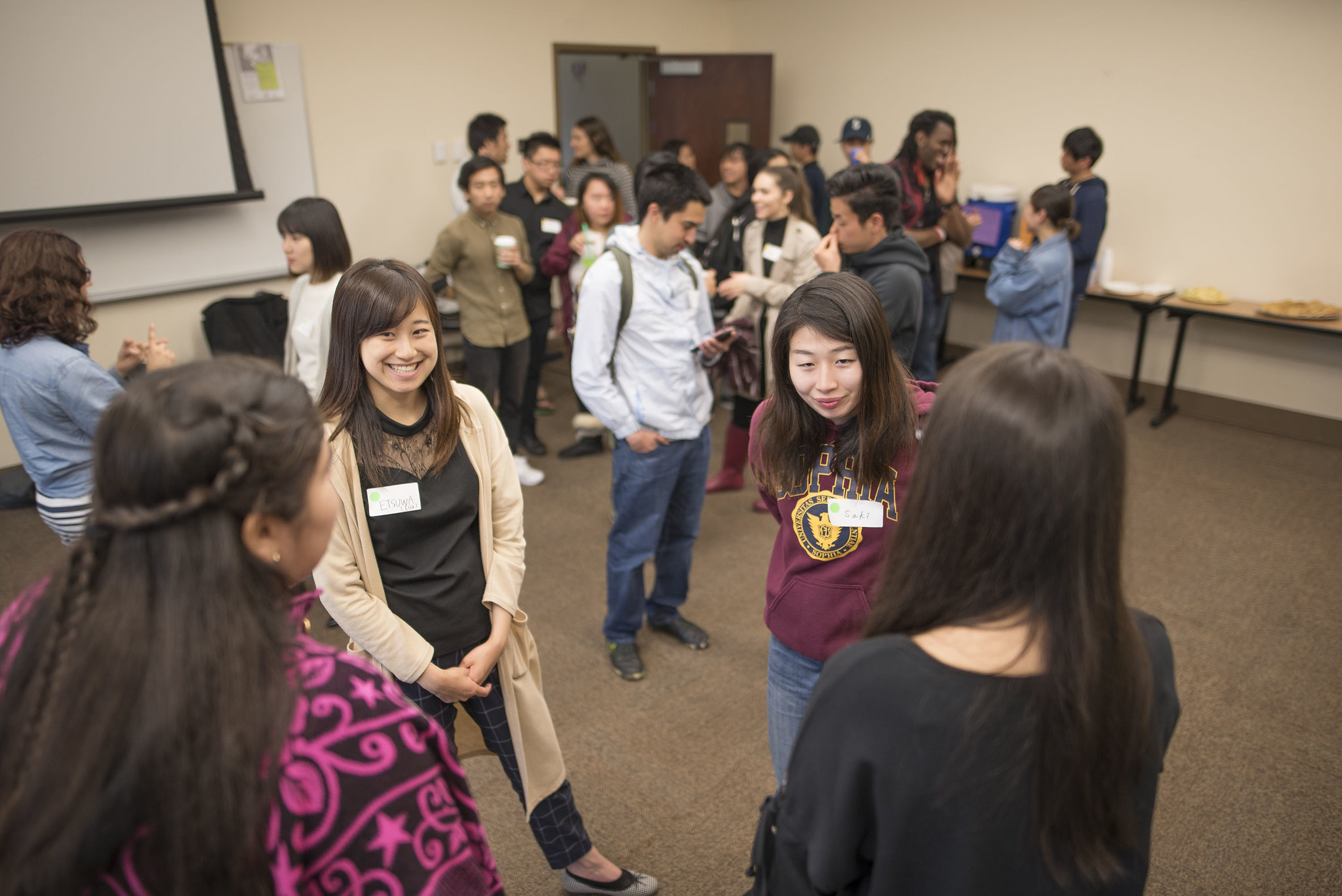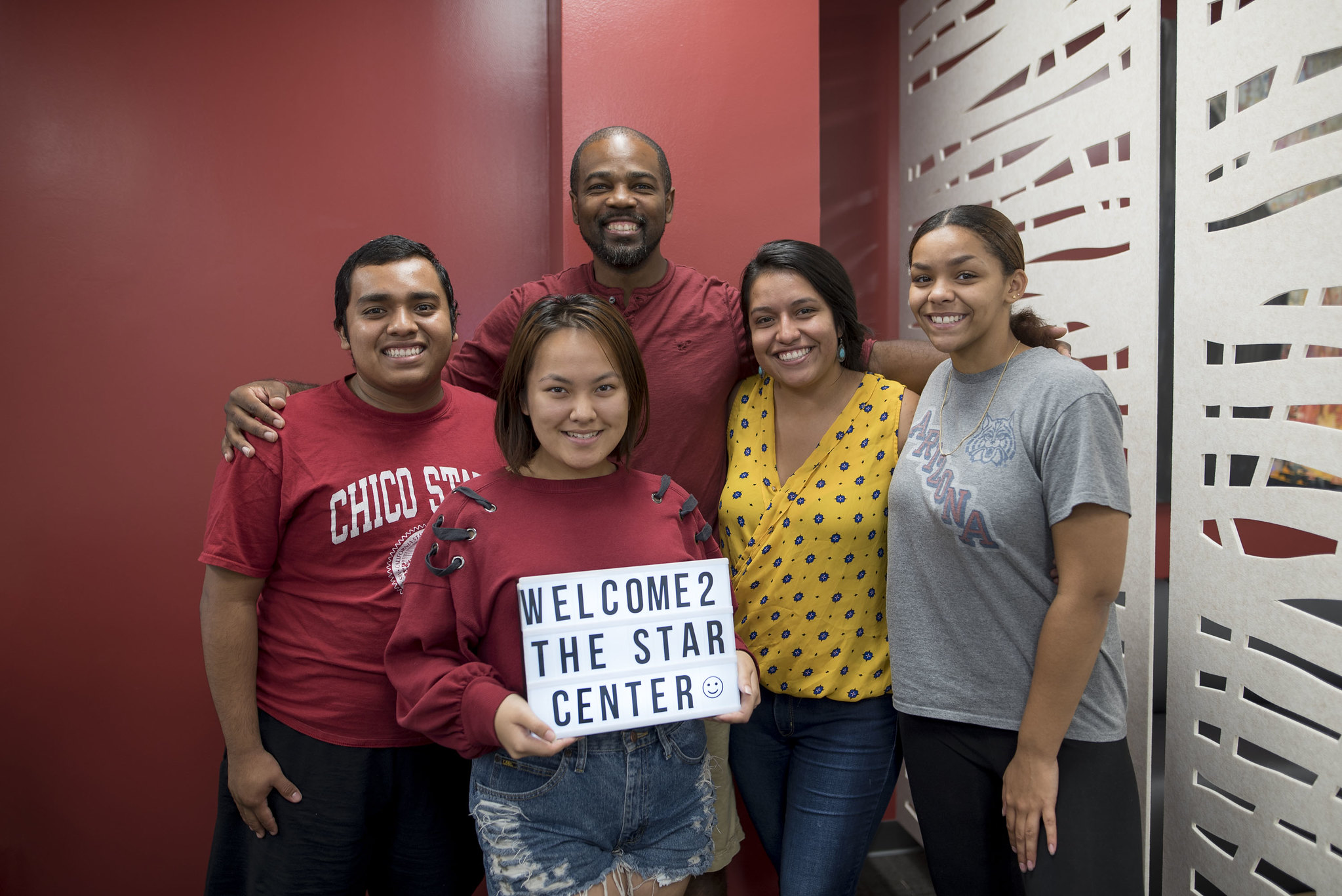Succeeding academically
Earning a bachelor's degree is like running a marathon—you have to put in the work, but you always have support. Marathons include course marshals to help keep runners on track, volunteers to give runners water, and friends to cheer on the runners. At Chico State, you have advisors to keep you on track and encourage you in your studies. We compiled resources and strategies to help you succeed academically, whether you are taking in-person or online courses. You can do this!
- Attend and participate in class
In-person courses. Going to class regularly helps you learn, keeps you on-track, and may be part of the course grade. And when you go to class, participate! It's okay to be nervous, but remember that other students probably have the same question—and no one is going to shame you if you have a question or answer a question incorrectly. Everyone at Chico State is here to learn. Another way to participate is to talk to other students during group work. You already have something in common, and talking to other students will help you make friends, enjoy going to class, and feel like you belong.
Online courses. If your course is synchronous, you will have class meetings at a specific time (just like in-person courses). Participating in synchronous online courses is a little different, but you should still attend class regularly and ask questions when you don't understand something. Keeping your camera on is a good way to keep a visual connection to other students and the instructor; talk with your instructor if your Internet connection is not fast enough to support video. There are on-campus places to attend online classes.
Asynchronous courses do not have specific times for class meetings. Learning in this type of course is more independent, but you still have support and the instructor to help guide you. Carefully read the course syllabus to see how you can participate. Many asynchronous online courses include discussion posts, and you can email your fellow students to arrange online study sessions.
- Go to instructor office hours
Instructors set aside time to be available for students. We call this time "office hours" or "student hours." You can ask questions about a lecture or assignment, get clarification on written feedback, discuss final project ideas, etc. Going to office hours will help you learn the material and build a relationship with the instructor.
Usually, instructors list their office hours on the syllabus (course outline) and in Blackboard/Canvas. Some departments have a webpage listing all instructors' office hours:
If you cannot meet with your instructor during regular office hours, ask them if you can meet at another time or in a different way (in-person, by phone, or by Zoom). Many instructors are flexible.
- Study effectively
All courses. Studying is more than just reading. Studying includes thinking about the course material in a variety of ways, asking questions, checking your understanding, and getting clarification. Here are a few resources:
- Upcoming in-person study skills workshops
- A recording of a study skills workshop
- Studying 101 from the University of North Carolina
- Study Skill Resources from Colorado State University
Online courses. Stay committed! Online courses, especially asynchronous courses, require more independent work. Suggestions:
- Take notes during lectures (live and recorded), then review those notes the next day. This will give you time to subconsciously process the information before refreshing with the notes.
- Study with other students from the course, and try to teach each other concepts. When you try to explain a concept to someone else, you discover how well you understand the concept.
- Create an environment that helps you focus. Add decorations to you study space, gather supplies, and communicate with other people who live with you that you need to focus at certain times to attend class and study.
- On-campus places to attend online classes
- Meet with a tutor
Chico State offers free tutoring for many subjects and courses. Tutors are usually upper-division students who have been recommended by professors and been trained by professional staff to provide assistance to individuals and small groups. Remember: tutoring does not replace going to class and tutors do not replace instructors.
- Writing (all courses; online appointments available)
- Math (MATH 031, 105, 110 and more)
- Kinesiology (PDF) (KINE 202, 322, and 323)
- Other subjects
- Manage your time
In-person courses. The key to managing your time is knowing how much time you have, how much time you need to complete your tasks, and when you can work on them. There are 168 hours in one week; you will spend about 15 of those hours in class and you should spend the same amount of time studying. Our suggestions:
- Read all of your syllabi (course outlines) and write down all the due dates for assignments, quizzes, etc. in one place—like the planner you received from Orientation or a mobile app like Todoist.
- Once you have all of your tasks written down, estimate how much time you need to complete the tasks. It's okay if the estimate is rough.
- Use your planner or mobile app to fill in your schedule. Add your commitments: class meetings, a job, club meetings, religious services, etc. Then add time in your schedule to study. Creating a routine will help you build a helpful habit and reduce the stress from procrastinating.
Online courses. If your course is synchronous, managing your time will be similar to an in-person courses. Regular meetings will provide similar structure.
Because asynchronous courses do not have specific times for class meetings, your work will be more independent. Establish a sustainable routine early in the semester. Other suggestions:
- Contact your instructor during office hours. Ask them for suggestions that have worked for that specific course. Talking with them will also give you the opportunity to ask questions and remain engaged with the course material.
- Create a weekly study group via Zoom that meets at a regular time. You can use the discussion board in Canvas to help create the group and find a time that works for everyone.
- Ask for help
Remember: it's okay to ask for help! Your instructor and your advisors want to see you succeed. The best way to get help is to ask. The CME Student Success Team can help you in-person or online.






